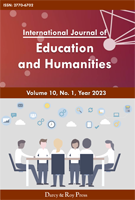Foodways as Borderlands: Identity and Culture in The Barbarians Are Coming
DOI:
https://doi.org/10.54097/2pxr0v27Keywords:
Foodways, Borderlands, Identity, Class, The Barbarians Are ComingAbstract
This paper examines how foodways-taste preferences, eating habits, and culinary practices-function as borderlands that shape racial, ethnic, and class identities in David Wong Louie’s The Barbarians Are Coming. Drawing upon Pierre Bourdieu’s theory of distinction and Guillermo Verdecchia’s concept of borderlands, it explores how the protagonist Sterling Lung’s culinary journey reveals tensions between assimilation and cultural memory. By analyzing food as a semiotic system of class and cultural hierarchy, the study argues that foodways delineate imaginary homelands and social boundaries that both constrain and define identity formation in diasporic contexts.
Downloads
References
[1] Mary Douglas. (1972). Deciphering a meal. Daedalus, 101(1), 61-81.
[2] Louie David Wong. (2000). The Barbarians are Coming: A Novel. Putnam Adult.
[3] Rushdie Salman. (1992). Imaginary homelands: Essays and criticism 1981-1991. Penguin.
[4] Verdecchia Guillermo. (1993). Fronteras Americanas (American Borders). Coach House.
[5] Cheng Anne Anlin. (2001). The Melancholy of Race: Psychoanalysis, Assimilation, and Hidden Grief. Oxford Unversity Press.
[6] Muñoz José Esteban. (1999). Disidentifications: Queers of Color and the Performance of Politics. University of Minnesota Press.
Downloads
Published
Issue
Section
License
Copyright (c) 2025 International Journal of Education and Humanities

This work is licensed under a Creative Commons Attribution 4.0 International License.

















